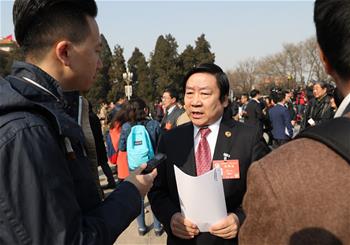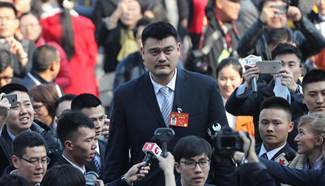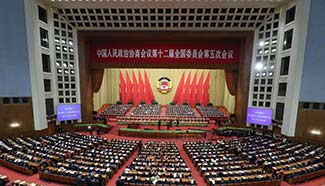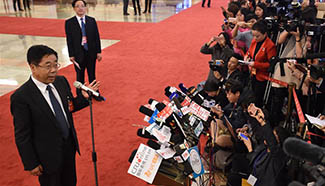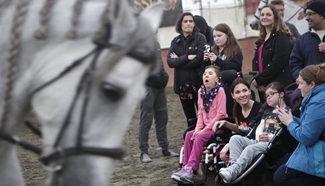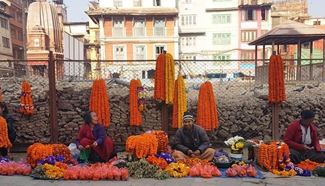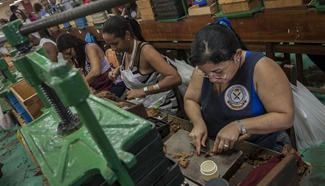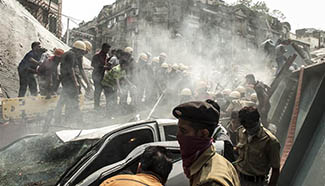Though they are part-time, NPC deputies are actively engaged in state affairs. At the annual full session, they review and vote on important legal documents and personnel changes, including electing president and vice president of China every five years, as well as submit motions and proposals.
At the 2016 session they approved the country's 13th Five-Year Plan (2016-2020), a fundamental guide to ensuring China becomes a well-off society. This year the deputies will review the draft general provisions of civil law of China, a landmark move by China to step up protection of civil rights and advance rule of law.
Since 2005, around 500 motions have been submitted by deputies to every annual session of the NPC. The 2016 session received around 460 motions, in addition to over 8,600 suggestions.
When not in session, they interact with the people, take up training programs, and participate in inspections of law enforcement and surveys on important or urgent issues. Some of them are invited to observe bi-monthly legislative sessions of the NPC Standing Committee.
There are five levels of people's congresses. The deputies are elected by their respective constituencies, either directly or indirectly. NPC deputies are elected by the people's congresses of provinces, autonomous regions and municipalities. At the lower levels of township and county, deputies to people's congresses are elected directly by voters, accounting for a majority of deputies at all levels. They elect deputies to people's congresses of cities, who in turn elect deputies at the provincial level.
NPC deputies are not divided into different caucuses according to party background but into 35 delegations based on where they are elected from, including 31 provinces, autonomous regions and municipalities, in addition to Hong Kong, Macao, Taiwan and the military.
Such an arrangement is pragmatic, given China's large territory and huge population, and ensures that NPC deputies are true representatives of the people.
However, the people's congresses are not just gatherings lasting a few days or weeks. When the NPC concludes its annual session, the NPC Standing Committee will exercise its power, holding bimonthly sessions to deliberate and adopt laws, among other matters.
Since Sept. 15, 1954, when about 1,200 deputies elected by universal suffrage gathered in Beijing to attend the first session of the first NPC, the people's congress system has been regarded as an effective chain linking the aspirations of the people, the goals of the nation and the responsibilities of legislators.
Election fraud is prohibited, and deputies elected through fraudulent means will be unseated.
In September 2016, 45 NPC deputies from Liaoning Province were disqualified for vote buying and bribery during the 2013 election, a clear signal of the nation's firm resolve in ensuring a corruption-free system.
Unlike multi-party systems in the West, there are no majority party or minority parties in the NPC. The NPC upholds the leadership of the Communist Party of China (CPC). The proposition of the CPC becomes the will of the state upon the approval of the NPC.
China's success story over the past decades has demonstrated that the system of people's congresses conforms to the conditions in China. In fact, the NPC has been a key part of that story.
There is certainly no need for China to copy the Western system, a move which will only lead to chaos and failure, as the experiences of certain countries have shown.




